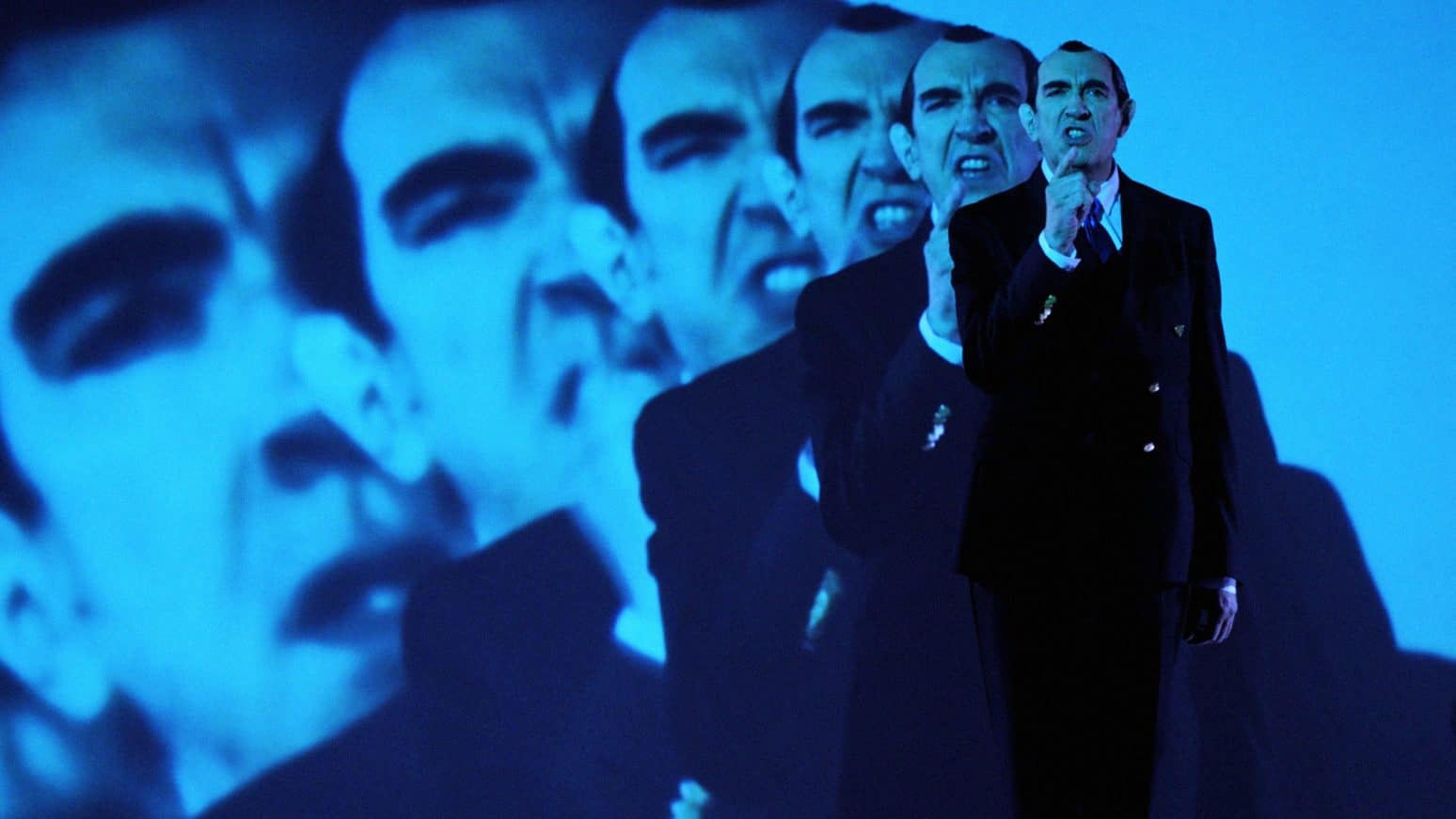Dir: Thomas Hamilton, Wri: Ron MacCloskey | With Caroline Munro, Guillermo del Toro, Ron Perlman, Christopher Plummer, Peter Bogdanovich, Stephanie Powers, John Landis, Joe Dante, Roger Corman, Sara Karloff | US Doc, 99′
Ron MacCloskey has poured 23 years of his life into this comprehensive 99 minute romp through the life and times of Boris Karloff, directed by co-writer Thomas Hamilton and based on the 2010 biography ‘Boris Karloff: More Than A Monster’ by Karloff’s official biographer Stephen Jacobs.
Enlivened by copious clips and archive material, the film takes us through the early years of Karloff’s debut in the 1920s, his breakthrough as Universal’s ‘monster’ Frankenstein during the 1930s and ’40s, up until to death in 1969, after a dazzling career as one of the icons of horror cinema – along with Bela Lugosi, Lon Chaney and Vincent Price.
Although best known for his ‘monster’ roles Karloff was also a fully fledged actor of stage and radio: his mellow bass voice, saturnine looks and striking bone structure lending itself well to a multitude of characters. Far from just a sinister, terrifying screen presence Karloff also exuded masterful integrity, and even managed to be vulnerable in many of his horror roles, notably in Frankenstein itself where as a creepy but kindly creature he is befriended by seven-year-old Maria (Marilyn Harris) who he subsequently throws into the lake.
A little top heavy on talking heads: the most entertaining here are Joe Dante, John Landis, and Roger Corman although a laconic Peter Bogdanovich, Guillermo del Toro, and Christopher Plummer also have their say sharing their extensive knowledge on the subject of Karloff’s career which spanned 150 films. Clearly Karloff made a big impression on his audiences; daughter Sara waxes lyrical with gratitude to her father’s considerable fan base: memorabilia and personal letters continue to flood in, 50 odd years after the actor’s death.
Film-wise most intriguing of Karloff’s appearances are in The Black Cat (1934), The Body Snatcher (1945) Isle of the Dead (1945); Howard Hawks prison thriller The Criminal Code (1930) and George Schaefer’s made for TV version of Joan of Arc, The Lark (1957) in which he stars as Bishop Cauchon alongside alongside Eli Wallach, Basil Rathbone and Denholm Elliott.
The Man Behind the Monster serves as a vigorous and definitive tribute to Karloff himself and traces back through the history of horror cinema in the early part of the 20th century, and although production values could have been stronger, the meat on the bone is certainly enjoyable. MT
NOW ON SHUDDER

 There is no filmmaker like Edgar Pêra (b.1960). His work may be an acquired taste but it is always inventive and Avant-garde referencing his heroes in creative ways and keeping the past alive. The Portuguese auteur often pays tribute to Dziga Vertov, Branquinho da Fonseca and Fernando Pessoa – but always in an ingenious way – transforming their ideas into bizarre and refreshing features, some will screen in a retrospective at the
There is no filmmaker like Edgar Pêra (b.1960). His work may be an acquired taste but it is always inventive and Avant-garde referencing his heroes in creative ways and keeping the past alive. The Portuguese auteur often pays tribute to Dziga Vertov, Branquinho da Fonseca and Fernando Pessoa – but always in an ingenious way – transforming their ideas into bizarre and refreshing features, some will screen in a retrospective at the  Edgar Henrique Clemente Pêra first studied psychology, but soon realised his vocation in Film at the Portuguese National Conservatory, currently
Edgar Henrique Clemente Pêra first studied psychology, but soon realised his vocation in Film at the Portuguese National Conservatory, currently 